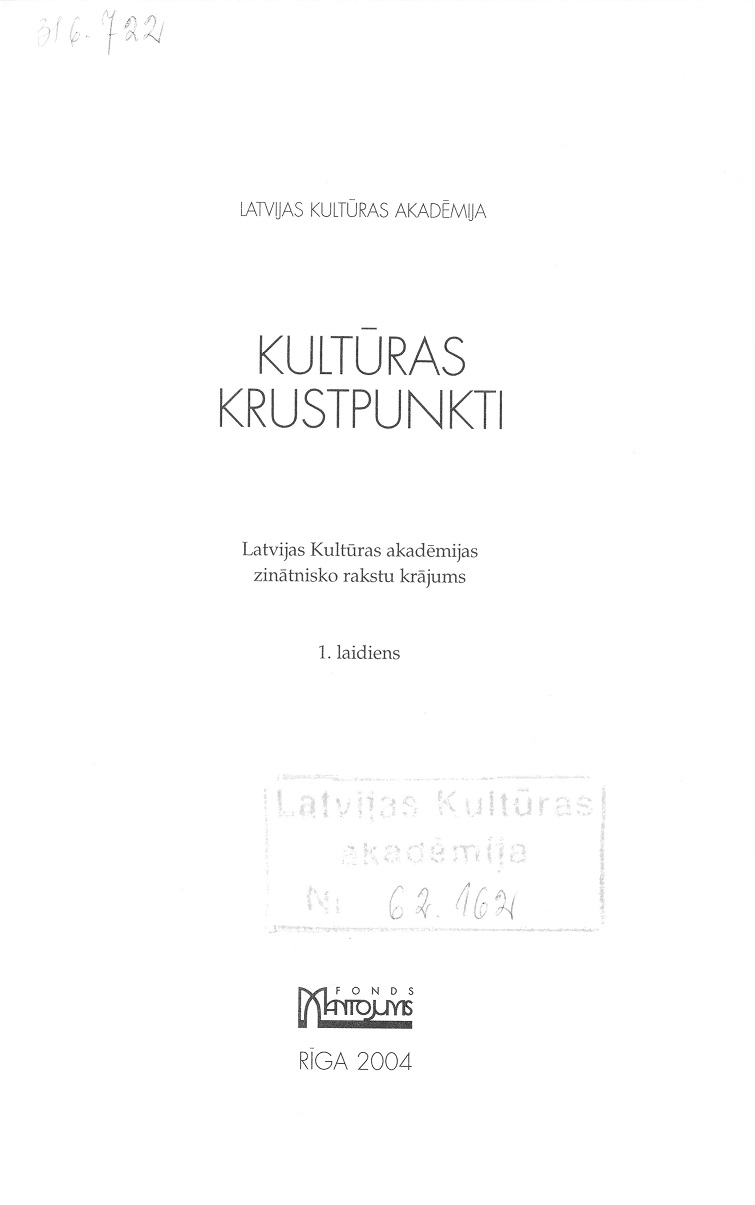Globalizācija un kultūra vēsturiskā retrospekcija
Globalisation and Culture in a Historical Retrospection
Author(s): Harijs TumansSubject(s): Cultural history, Social Philosophy, Social history, Social development, Sociology of Culture, Sociology of Politics, Globalization
Published by: Latvijas Kultūras akadēmija
Keywords: Globalization; culture; globalization through history; cultural traditions; mass culture; cultural policy; politics; cultural identity;
Summary/Abstract: The article is devoted to the analysis of globalisation in a historical context Globalisation is defined as a widespread integration or unification of various spheres of life - politics, economy, culture. The central thesis of the article claims that modern globalisation is nothing new or unknown, but an old and historically experienced phenomenon. The unification of different fields of life was already realised in the Roman Empire and the Soviet Union. In both cases the political, economic and cultural integration touched many nations with differenl cultural traditions. The first integration is called Romanisation, the second we know as Sovietisation, however, the current unification process is sometimes called Americanisation. At the end of the comparative analysis of the above mentioned historical examples the author draws a conclusion that all the investigated globalisation examples have three common preconditions: 1) a unitary geopolitical space built by an empire; 2) the leading nation (the core of the empire) on which the empire is built; 3) a united ideology expressing the idea of the empire and its mission in the world. In all the cases globalisation is gained by using the same central means: 1) a united political system; 2) a common state ideology with the idea of a mission in the centre; 3) a unitary culture policy and the spread of a mass culture. Of course, modern globalisation has also its own distinctive features - firstly, it does not takes place in the framework of a traditional empire but in the framework of a unitary political space with of the hegemony of one state; secondly, culture policy is realised by using powerful information technologies, which have no comparison in the past. Historical experience demonstrates that only nations with highly developed cultural and religious traditions are able to preserve their cultural identity under the circumstances of global unification. It means that Latvian culture will be able to survive in the new unified world only in case if we pave the way to its preservation and development.
Journal: Culture Crossroads
- Issue Year: 1/2004
- Issue No: 1
- Page Range: 116-132
- Page Count: 17
- Language: Latvian

